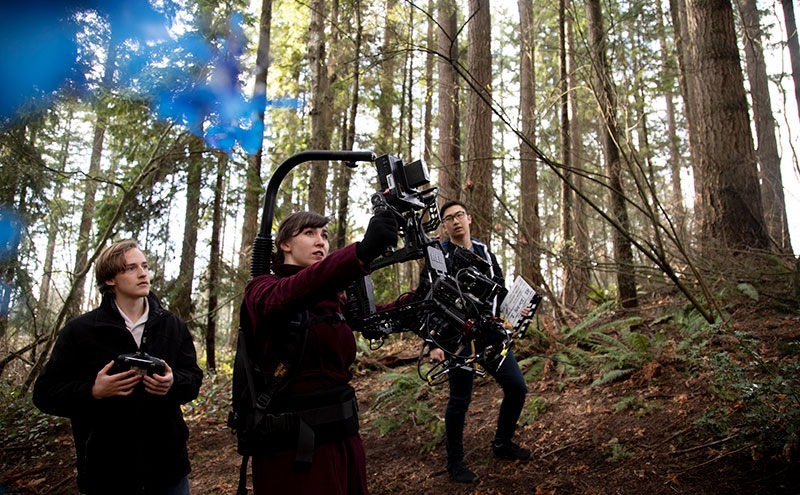Transitioning from Emergency Remote to In-Person Teaching
Like many of you, we all were genuinely looking forward, to leaving behind, “emergency remote teaching” and reconnecting with our students and our peers back on campus. Sadly, this return to campus was delayed by the fourth wave and the ensuing “uncertainty”. But uncertainty is not necessarily akin to calamity.
Uncertainty, Teaching, and Learning
The concept of uncertainty is central to many theories of learning. More than a century ago, philosophers of education such as John Dewey (1859–1952) and William James (1842-1910) wrote extensively about the teacher’s unsettling of (pre-)existing understanding to develop moments of uncertainty for students. Achieved through the teaching practices of the teacher, these moments of uncertainty could illicit discomfort or anxiety for a student (English & Stengel, 2010), but if attended to by the teacher could allow for transformational learning to begin (hooks, 1994).
Understood as a part of the learning process, the uncertainty introduced by the teacher to the student can lead to discomfort/anxiety toward what they previously thought they understood. It is in that moment of discomfort and anxiety that the teacher’s “work” really begins. Simply problematizing an individual’s existing understanding may be suitable in some situations, but within the context of higher education and the teacher-student relationship, our professional responsibility is to offer and facilitate ways out of this discomfort toward new or greater understanding for our students.
What have you done to facilitate discussions about your students’ discomfort the last two years (i.e., Covid, learning online, etc.)? What have you learned that you can carry forward?
Paying Attention to Relationships in our teaching
One outcome for many faculty from the last two years of pandemic teaching and learning has been the opportunity to take a big step back from the institutionalization of higher education, and focus, almost entirely on our teaching and pedagogical practices (DeCesare, 2021). This greater attention to our teaching relationships with students has been partly motivated by our desire to help them through the larger uncertainties represented by the pandemic (i.e., economic, cultural, health, social, etc.). This attentiveness to meeting our students where they currently are, has taken many forms.
Lacking the physical proximity of being together present in a classroom, has required us to give more of ourselves as we build different types of relationships with students (Lee et al., 2021). One observation shared with the CTE by CapU faculty over the last year has been the recognition of how much more we are sharing about our own lives and challenges during our teaching, and in turn welcoming our students to do the same, to develop more authentic and meaningful learning relationships.
Authentic Relationships
This greater sense of authenticity, being more than just the content expert as a teacher, but instead a whole person, has encouraged some to pose the following questions as we transition back to in-person classroom teaching:
What specific practices have we done or offered to our students through the pandemic (to try to mitigate the drawbacks of “emergency remote teaching”) to maintain and strengthen our learning relationships?
With a return to in-person classroom teaching, rather than discard these successes, how can we incorporate these practices into our teaching philosophy at CapU?
The CTE encourages all faculty to consider these questions as they relate to their own unique experiences as teachers through the pandemic, and wherever possible, to share with colleagues what you have gained through this experience that has aided in the ongoing improvement of your teaching. Reflect upon the uncertainty the pandemic introduced to your experiences as a teacher and those of your students: What changes to your teaching philosophy and practices might you carry forward into the future? How might you share these changes with your colleagues?
Sources and Additional Resources
Bingham, C. (2008). Authority is Relational: Rethinking Educational Empowerment. State University of New York Press. https://ezproxy.capilanou.ca/login?url=https://search.ebscohost.com/login.aspx?direct=true&AuthType=ip,uid&db=nlebk&AN=228946&site=eds-live&scope=site
DeCesare, R. (2021). Philosophy of Education in Unprecedented Times: Seizing opportunity in calamity. Philosophical Studies in Education, 52: 1-8. https://ezproxy.capilanou.ca/login?url=https://search.ebscohost.com/login.aspx?direct=true&AuthType=ip,uid&db=edo&AN=154165549&site=eds-live&scope=site
Dewey, J. (1895). The theory of emotion. (2) The significance of emotions. Psychological Review, 1: 13-32. https://brocku.ca/MeadProject/Dewey/Dewey_1895.html
English, A. & Stengel, B. (2010). Exploring Fear: Rousseau, Dewey, and Freire on Fear and Learning. Educational Theory, 60(5): 521-542. https://ezproxy.capilanou.ca/login?url=https://search.ebscohost.com/login.aspx?direct=true&AuthType=ip,uid&db=a9h&AN=55773574&site=eds-live&scope=site
hooks, b. (1994). Teaching to Transgress: Education as the Practice of Freedom. New York: Routledge. https://ezproxy.capilanou.ca/login?url=https://search.ebscohost.com/login.aspx?direct=true&AuthType=ip,uid&db=cat02755a&AN=cul.b1350904&site=eds-live&scope=site
James, W. (1884). What Is an Emotion? Mind, 9: 188-205. https://ezproxy.capilanou.ca/login?url=https://search.ebscohost.com/login.aspx?direct=true&AuthType=ip,uid&db=edsjsr&AN=edsjsr.2246769&site=eds-live&scope=site
Lee, Moskowitz-Sweet, G., Pelavin, E., Rivera, O., & Hancock, J. T. (2021). “Bringing you into the Zoom”: the power of authentic engagement in a time of crisis in the U.S. Journal of Children and Media, 15(1): 91–95. https://doi.org/10.1080/17482798.2020.1858437
Sensoy, O. and DiAngelo, R. (2017). Is everyone really equal? An introduction to key concepts in social justice education. New York: Teachers College Press.

Recent Comments